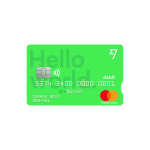Kirby, a fast alternative to WordPress
It doesn't always have to be WordPress
In the last 10 years, WordPress has been the dominant CMS. There are thousands of templates and plugins available. The advantage: you can quickly put something together and there is a plugin for almost everything. Unfortunately, WordPress also has a few disadvantages. Depending on the theme and plugins used, it can be slow, and the media management could be better. Sometimes you can tell that WordPress is actually a blog system. Multilingualism is more of a nightmare. Without good protection, it also becomes a security risk. Of course, for some sites, WordPress is still a good CMS to create a cheap site (also because many people already know it), but there are alternatives.
In recent years, I have been looking for a usable CMS for small and medium-sized websites. I have tried a few (Bludit, Grav, etc.) until I eventually came across Kirby.
Kirby: The CMS that adapts to every project
Kirby is not a 'quickly put something together' CMS. For that, there are website builders (WIX, Squarespace, and the like), which often result in terrible outcomes. While this might be okay for a club website, it's not suitable for a professional site. Kirby is aimed at experienced web developers and designers.
Kirby is a CMS for professionals. I can tailor it precisely to the requirements of my clients. To create a website, you need HTML, CSS, and PHP knowledge. The good thing is: you can use your favorite CSS framework to create the template, or you can simply use a ready-made HTML template and build a Kirby template with it. Kirby supports multilingual websites out of the box and does not require a database. Kirby is a flat-file CMS and is extremely fast. Exactly what you want today.
Once the website is created, it is incredibly easy for the end customer to keep the website up-to-date.
Flexible and fast
What I particularly like is the principle of Blueprints. For each page, you can define exactly what you need. Except for the page title, nothing is predefined. So, for example, I can define what I need for the homepage (header image, introductory text, etc.) and then define the fields needed for a product page. This makes it extremely flexible. Templates, Blueprints, content, and the CMS are nicely separated, making it easy to maintain. I can even integrate my own code, like a small database application. But one of the best features of Kirby is the speed at which it delivers pages. Who likes to wait?
For me, Kirby is the perfect WordPress alternative.
Kirby is an open-source project but not free. However, the price (CHF 99) is absolutely fair. Companies like Mercedes Benz, Philips, and The New York Times trust Kirby as their CMS, which says something, right?
What does a Kirby website cost?
The path to a new website
- Analysis (current state / desired state)
- Concept (content, structure)
- Procure / create texts, images (logo)
- Optional: Wireframe
- Find template or minimal design that fits the content.
- Implementation (adapt template and CMS to the requirements)
- Capture content
- Corrections
- Online
- Maintenance
Useful tools to make your website a success
A list of links to resources for web developers, without claiming to be complete.






